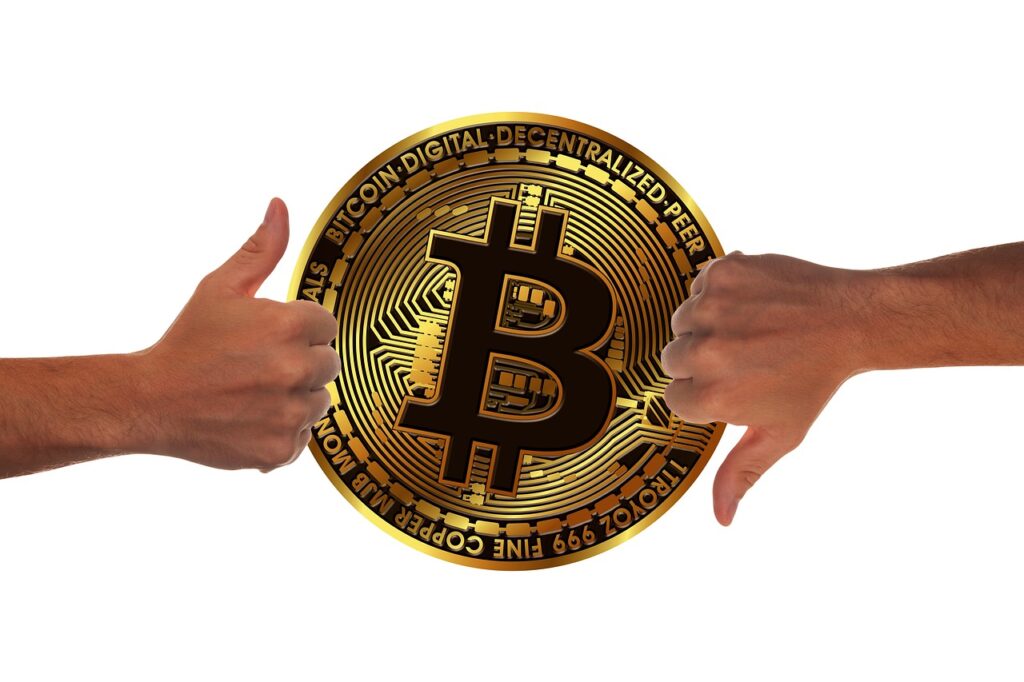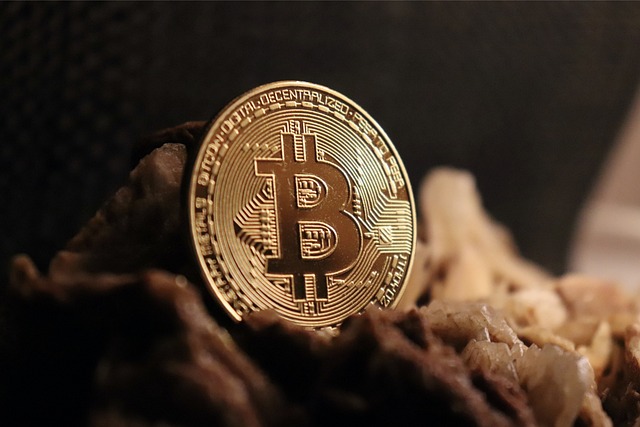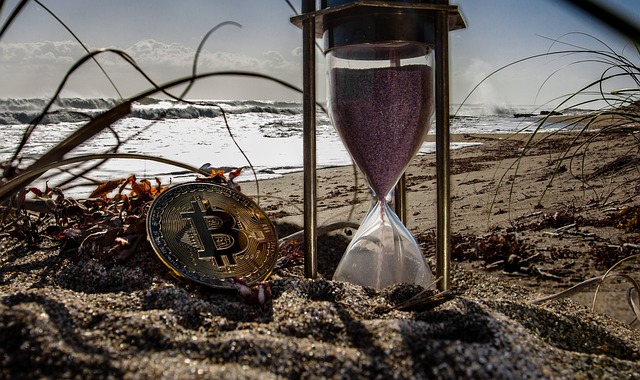DeFi’s Promised Land: Unveiling Its Transformational Benefits
DeFi’s Promised Land: Unveiling Its Transformational Benefits

Understanding the Potential of Decentralized Finance
Decentralized Finance, or DeFi, has emerged as a game-changer in the world of finance. It is built on blockchain technology, which allows for the creation of financial applications and services without the need for intermediaries like banks or brokers. The potential of DeFi lies in its ability to create an open and accessible financial system, where anyone with an internet connection can participate. This has the potential to revolutionize traditional financial systems and bring financial inclusion to the masses.
One of the biggest advantages of DeFi is its ability to unlock financial services for the unbanked and underbanked populations. In many parts of the world, people lack access to basic banking infrastructure, making it difficult for them to save, borrow, or invest. DeFi platforms provide an alternative by enabling individuals to access financial services using only a smartphone and an internet connection. This has the potential to empower individuals economically, giving them control over their financial lives and the opportunity to participate in the global economy. The potential of DeFi to transform the financial landscape is immense, and it is undoubtedly an exciting space to watch out for in the coming years.
Exploring the Opportunities Within the DeFi Ecosystem
The DeFi ecosystem is teeming with opportunities for individuals seeking to participate in the decentralized finance movement. One of the most prominent opportunities within this system is the ability to engage in decentralized lending and borrowing. Unlike traditional banks that act as intermediaries, DeFi protocols enable users to lend their cryptocurrencies and earn interest on their holdings. Likewise, borrowers can access funds without the need for credit checks or collateral.
Another avenue of opportunity in the DeFi space is yield farming and staking. These methods allow users to earn additional returns on their cryptocurrencies by locking them up in smart contracts. By providing liquidity to various DeFi platforms, individuals can stake their tokens and potentially receive rewards in the form of transaction fees or new tokens. This strategy has gained popularity as it offers users a way to generate passive income and maximize their investment potential.
How DeFi is Disrupting Traditional Financial Systems
Traditional financial systems have long been characterized by centralization, with banks and other financial institutions acting as intermediaries in transactions. However, decentralized finance, or DeFi, is rapidly disrupting this status quo. By utilizing blockchain technology and smart contracts, DeFi allows for the creation of decentralized applications (DApps) that operate without the need for intermediaries. This means that individuals can directly interact with and transact with each other, without relying on banks or other financial institutions.
One of the key ways in which DeFi is disrupting traditional financial systems is through its ability to provide financial services to the unbanked and underbanked populations. In many developing countries, traditional banks are inaccessible to large portions of the population due to issues such as distance, lack of identification, or lack of trust. DeFi platforms, on the other hand, can provide financial services to anyone with an internet connection and a smartphone. This has the potential to unlock financial inclusion on a global scale, giving individuals the tools they need to save, invest, and participate in the global economy.
• DeFi enables financial services to be accessible to the unbanked and underbanked populations
• Traditional banks are often inaccessible due to distance, lack of identification, or lack of trust
• DeFi platforms can provide financial services to anyone with an internet connection and a smartphone
• Financial inclusion on a global scale is possible through DeFi
• Individuals can save, invest, and participate in the global economy
Unlocking Financial Inclusion with DeFi
The concept of financial inclusion has always been a priority for policymakers and financial institutions worldwide.


One of the key benefits of DeFi is its ability to provide individuals with new avenues for lending and borrowing. Traditionally, accessing credit has required a lengthy and often complicated process, making it inaccessible to many. With DeFi, individuals can participate in decentralized lending and borrowing protocols, which operate on an open and transparent network. By leveraging their digital assets as collateral, users can access loans without relying on traditional financial institutions. This opens up a multitude of possibilities for those who have been excluded from the traditional banking system, empowering them to take control of their financial futures.
Empowering Individuals through Decentralized Lending and Borrowing
Decentralized lending and borrowing have emerged as powerful tools in the world of decentralized finance (DeFi), enabling individuals to take control of their financial futures. Traditional lending systems, often plagued by bureaucratic processes and high fees, have left many individuals underserved and excluded. However, with the advent of DeFi, anyone with an internet connection can participate in lending and borrowing activities, regardless of their geographic location or financial background.
Through decentralized lending platforms, individuals can lend their cryptocurrencies and earn interest on their holdings without the need for intermediaries. This empowers individuals by providing them with a passive income stream, allowing their money to work for them even when they are not actively trading or investing. Additionally, borrowers can access capital without going through the traditional banking system, which often involves tedious loan applications and extensive credit checks. This democratization of lending and borrowing opens up opportunities for individuals who may have been previously overlooked by traditional financial institutions.

The Benefits of Yield Farming and Staking in DeFi
Yield farming and staking are two key components of the burgeoning decentralized finance (DeFi) ecosystem, offering a range of benefits to both individual users and the broader financial landscape. One of the main advantages of yield farming is the potential to earn substantial returns on investments. In simple terms, yield farming involves lending out digital assets to other users through DeFi platforms in exchange for earning additional tokens as rewards. By utilizing these lending and borrowing platforms, users can generate passive income on their existing assets, making their money work harder for them without requiring active trading or complex financial strategies.
Additionally, staking, which is closely related to yield farming, offers another avenue for users to earn rewards within the DeFi space. Staking involves locking up a certain amount of cryptocurrency in a specific network and participating in its consensus mechanism, thereby aiding its security and overall functionality. In return for their contributions, individuals receive regular rewards in the form of additional tokens. Similar to yield farming, staking provides an attractive way to grow one’s holdings passively. Moreover, staking often comes with the added benefit of encouraging long-term investment strategies, as users are incentivized to hold their tokens for extended periods rather than engaging in frequent buying and selling.
Harnessing the Power of Smart Contracts in Decentralized Finance
Smart contracts have emerged as a crucial feature in the realm of decentralized finance (DeFi). With their self-executing capabilities and automation, smart contracts enable secure and efficient transactions without the need for intermediaries. This technology has revolutionized the way financial operations are conducted, offering users greater control over their assets and eliminating the need to rely on traditional institutions.
One of the main advantages of harnessing the power of smart contracts in DeFi is the increased transparency it provides. As these contracts are based on blockchain technology, all transactions and agreements are recorded and stored on a public and immutable ledger. This transparency ensures that all parties involved have access to the same information, reducing the risk of fraud and enhancing trust in the system. Additionally, the automation aspect of smart contracts eliminates the need for manual verification and execution, streamlining processes and reducing the occurrence of human error.
DeFi’s Impact on Cross-Border Transactions and Remittances
Cryptocurrencies and the rise of decentralized finance (DeFi) have paved the way for significant advancements in cross-border transactions and remittances. Traditional remittance services are often plagued by high fees, long processing times, and infrastructure limitations. However, DeFi has the potential to disrupt this system, offering a more efficient and accessible alternative.
One of the main advantages of DeFi in cross-border transactions is its ability to eliminate intermediaries. By utilizing blockchain technology, DeFi platforms facilitate peer-to-peer transactions without the need for financial intermediaries such as banks. This not only reduces transaction costs but also enables faster and more secure cross-border transfers. Additionally, DeFi allows for direct ownership of assets, eliminating the need for complex custody systems and centralized control. The decentralized nature of DeFi means that individuals have complete control over their funds and can transact directly with others across borders. This not only promotes financial sovereignty but also reduces the risk of censorship and control by third-party entities.
Navigating the Risks and Challenges of DeFi Investments
Investing in the decentralized finance (DeFi) space can be an exciting and rewarding venture, but it is not without its fair share of risks and challenges. One of the main challenges faced by DeFi investors is the volatility of the market. Prices of cryptocurrencies and tokens can fluctuate rapidly, making it difficult to predict and time the market. This can lead to potential losses if investments are not made wisely.
Another challenge is the prevalence of scams and fraudulent activities within the DeFi ecosystem. As DeFi projects gain popularity, there has been a rise in the number of fake projects and ponzi schemes that lure unsuspecting investors with promises of high returns. It is crucial for investors to conduct thorough research and due diligence before investing in any DeFi project. Checking the project’s legitimacy, team credentials, and community trust can help mitigate the risk of falling victim to scams. Additionally, studying the smart contracts and auditing reports can provide further insights into the project’s security and reliability.
Navigating the risks and challenges of DeFi investments requires careful consideration and a deep understanding of the market. Being aware of the market volatility and actively monitoring investments can help mitigate potential losses. It is also essential to keep oneself informed about the latest security measures and best practices in the DeFi space to avoid falling victim to scams. By understanding the risks and challenges and adopting a cautious approach, investors can make informed decisions and potentially reap the rewards of the exciting world of DeFi.
The Future of DeFi: Innovations and Potential Roadblocks
The future of DeFi is filled with exciting potential for innovations that can transform the financial landscape. As more developers and entrepreneurs delve into the world of decentralized finance, we can expect to see a range of new applications and technologies being developed. For instance, advancements in tokenization can enable the creation of new asset classes, bridging the gap between traditional and digital economies. Moreover, with the advent of oracle networks, DeFi platforms can tap into real-world data and enhance the efficiency and reliability of their operations.
However, alongside these remarkable possibilities, there are potential roadblocks that must be navigated. One of the main challenges is scalability, as the current DeFi infrastructure struggles with congestion and high transaction costs. Overcoming these obstacles will require innovative solutions and technological breakthroughs. Additionally, regulatory considerations play a crucial role, as governments around the world grapple with the rapidly evolving nature of DeFi. Achieving a harmonious balance between innovation and compliance will be essential for the future success and widespread adoption of decentralized finance.
What is decentralized finance (DeFi)?
DeFi refers to a financial system that operates on blockchain technology, allowing users to access financial services without the need for intermediaries like banks.
What are the potential benefits of DeFi?
DeFi offers various benefits, such as increased financial inclusion, lower costs, faster transaction speeds, and the ability to earn passive income through lending and staking.
How is DeFi disrupting traditional financial systems?
DeFi is disrupting traditional financial systems by eliminating the need for intermediaries, reducing fees, and providing access to financial services to those who are underserved or unbanked.
Can DeFi help in unlocking financial inclusion?
Yes, DeFi has the potential to unlock financial inclusion by providing access to financial services to individuals who are traditionally underserved by traditional banking systems.
How does decentralized lending and borrowing empower individuals?
Decentralized lending and borrowing in DeFi allow individuals to lend their assets and earn interest, or borrow assets without the need for a traditional bank, thus empowering them to have more control over their finances.
What are the benefits of yield farming and staking in DeFi?
Yield farming and staking in DeFi allow users to earn passive income through lending or staking their assets, providing an opportunity for higher returns compared to traditional savings accounts.
How does DeFi harness the power of smart contracts?
DeFi utilizes smart contracts, which are self-executing contracts with predefined rules. These smart contracts enable automatic and secure transactions without the need for intermediaries.
How does DeFi impact cross-border transactions and remittances?
DeFi simplifies and accelerates cross-border transactions and remittances by eliminating the need for traditional banking intermediaries, thus reducing costs and increasing efficiency.
What are the risks and challenges of DeFi investments?
Some risks of DeFi investments include smart contract vulnerabilities, price volatility, and the potential for hacks or scams. It’s important for investors to conduct thorough research and exercise caution.
What does the future hold for DeFi?
The future of DeFi looks promising, with potential innovations in areas like decentralized exchanges, identity verification, and insurance. However, there may be regulatory and scalability challenges that need to be addressed.
Todays Featured Product:
Buy, exchange and grow your crypto securely with a Ledger hardware wallet, combined with the Ledger Live app. It’s never been easier to keep your crypto safe and accessible. Buy direct from Ledger.com and get todays Special Offers Here.




